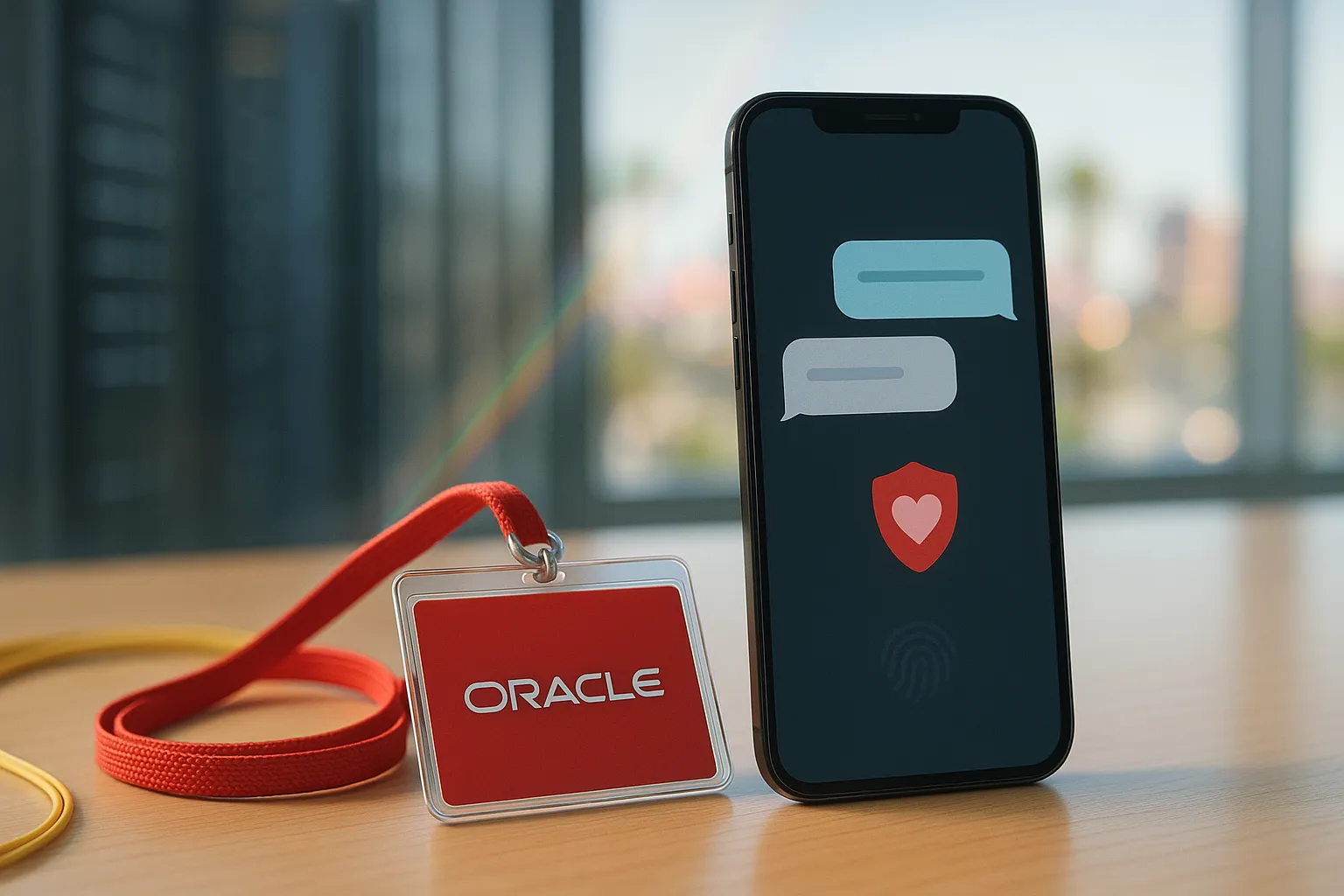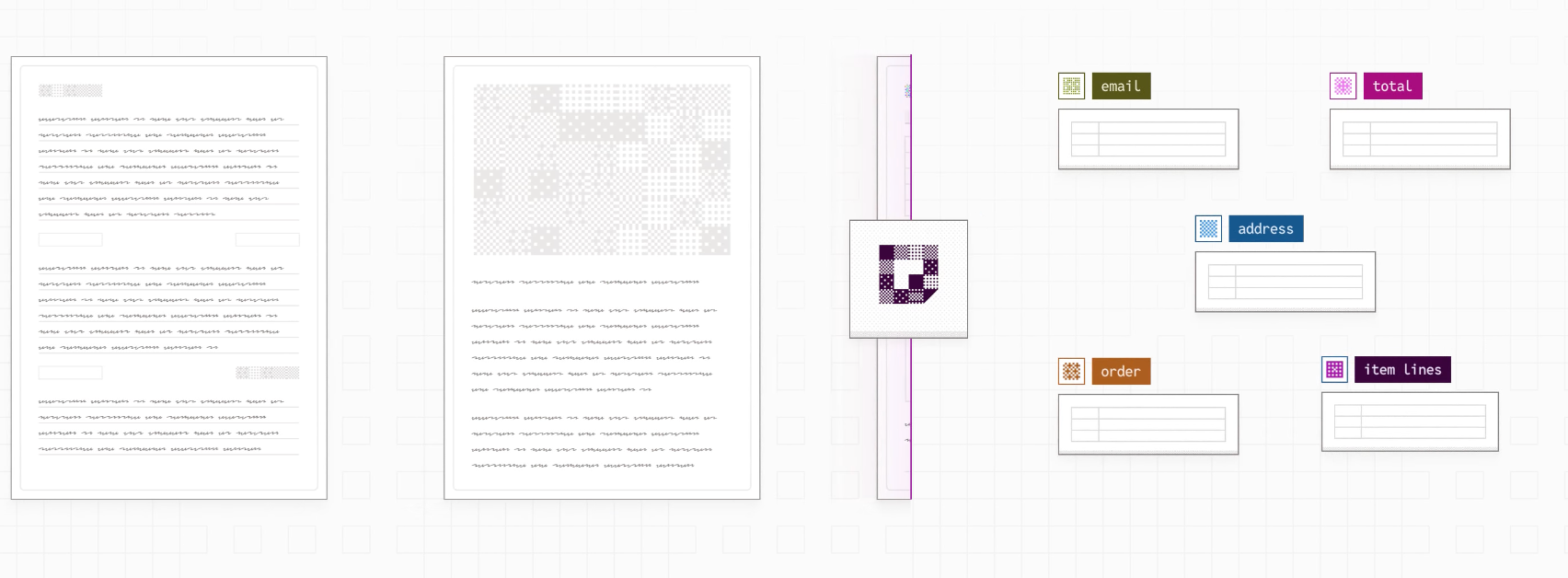The $2 Billion Escape Plan That Beijing Didn't See Coming
Meta's $2B Manus deal triggered reviews by three Chinese agencies. The 'China shedding' playbook for AI startups faces its first test.

Good Morning from San Francisco,
Oracle wants your data to stay firmly put while training AI models. Larry Ellison pitched this vision at a Vegas conference, where promises of gigawatt-scale facilities clashed with the hard reality of a $300 billion OpenAI contract. The massive infrastructure bet assumes AI demand won't wobble anytime soon.
Meanwhile, OpenAI plans to let adults have intimate conversations with ChatGPT starting this December. The timing is notable—announced the same week California passed new chatbot regulations and a wrongful death lawsuit continues. Age verification details remain TBD. Three months to solve that particular challenge at a billion-user scale.
Two stories about infrastructure. One physical, one social.
Stay curious,
Marcus Schuler

Oracle repositioned as AI infrastructure provider at its Las Vegas conference, promising enterprises can train models on proprietary data without sending it to OpenAI or Anthropic.
The mechanism: RAG technology converts corporate information into vectors that stay in Oracle databases while models query them remotely.
The bet rests on massive scale. Oracle, OpenAI, and SoftBank are building a 1.2-gigawatt Abilene facility with 500,000 Nvidia GPUs—one node in a planned $500 billion Stargate network spanning ten sites. Oracle's architecture skips custom chips, instead optimizing infrastructure around Nvidia hardware using bare metal and RDMA technology.
The structural risk: tight coupling. Oracle's reported $300 billion OpenAI contract creates dependency. If OpenAI stumbles or AI demand weakens, Oracle sits on gigawatt-scale capacity without tenants. The company hedged with 50,000 AMD GPUs for 2026, but Nvidia remains foundational.
Why this matters:
• The private data thesis suggests competitive moats shift from model capabilities to proprietary training data and secure access mechanisms—making infrastructure providers potential kingmakers regardless of which foundation model wins.
• Oracle's architecture bet tests whether AI advantage comes from custom silicon or optimized commodity processor deployment—a lower-cost path if demand proves durable, catastrophic overcapacity if it doesn't.



Prompt:
A realistic close-up portrait of a young woman with dewy, glowing skin, naturally flushed pink cheeks, and glossy soft pink lips. One single thin, wet black hair strand falls perfectly across the center of her face, while the rest of her hair is sleek and controlled no extra messy strands. Her forehead is smooth, and her makeup is clean, modern, and minimalistic, emphasizing natural beauty. The woman stares directly into the camera with an intense, captivating gaze that feels both vulnerable and powerful. Harsh flash lighting accentuates every fine skin texture detail, creating a tactile, high-fashion feel. The background is plain white, amplifying the subject’s presence. Captured in sharp focus and ultra-high resolution, styled as a cinematic editorial beauty photograph taken with a Hasselblad camera refined, intimate, and modern.

OpenAI plans age-gated erotic ChatGPT conversations starting December, alongside friendlier customization options arriving sooner.
CEO Sam Altman announced Tuesday the company built mental health detection tools strong enough to "safely relax restrictions" tightened after a teenager's suicide earlier this year. His parents sued OpenAI for wrongful death; that case proceeds.
The announcement landed the same week California passed AI chatbot regulations and federal regulators opened an inquiry into companion AI risks for minors. OpenAI's move tests boundaries: it signals confidence that new safeguards satisfy emerging requirements while competitors like Grok and Character.AI already offer romantic roleplay without restrictions.
Critical gap: no age verification details. Effective systems require government IDs, facial recognition, or third-party services—each carrying privacy and implementation challenges. OpenAI has three months to build this at billion-user scale.
Why this matters:
• Platform AI economics reward emotional engagement, creating recurring cycles of restriction and relaxation as safety tools and market pressures collide
• Age verification becomes critical infrastructure determining which features platforms can offer adults without youth protection liability


Clay combines 75+ data providers and AI research agents into one platform to automate lead generation and personalization. It enriches contact data from multiple sources, uses AI to research prospects and write personalized emails, then syncs everything to your CRM so you can turn ideas into outreach campaigns in minutes.
Tutorial:
URL: https://www.clay.com
Turn these meeting notes into action items grouped by owner.
For each task include:
List unassigned tasks separately.
Notes: [paste text]
Apple CEO Tim Cook met with China's Industry Ministry and committed to boosting the company's investment in the country, though specific details of the pledge were not disclosed. The meeting comes as Apple continues to navigate the ongoing trade tensions between the United States and China while seeking to maintain its significant market presence in both countries.
ASML Holding NV's Chief Financial Officer Roger Dassen stated the Dutch semiconductor equipment manufacturer is "well prepared" to handle China's new restrictions on rare earth exports, which are critical materials used in chip manufacturing equipment. However, industry sources indicate the company could still experience weeks-long delays in shipments as the broader semiconductor supply chain adjusts to the trade restrictions.
A powerful investment consortium led by BlackRock, Nvidia, xAI, and Microsoft has announced plans to acquire Aligned Data Centers, a Texas-based data center operator, from Macquarie in a landmark $40 billion deal. The consortium aims to significantly expand Aligned Data Centers' operations to meet the rapidly growing demand for computing infrastructure, particularly as artificial intelligence and cloud computing services continue to surge across multiple industries.
The U.S. Department of Homeland Security reports that Chinese criminal organizations have generated more than $1 billion over the past three years through fraudulent text message campaigns targeting American consumers. According to cybersecurity firm Proofpoint, these scams reached a new peak last month with a record 330,000 toll-related fraud texts reported, as criminals use fake messages about unpaid tolls and postal fees to steal credit card information for purchasing gift cards and luxury goods.
Artificial intelligence is significantly disrupting India's business process management sector, which currently employs 1.65 million workers, as AI chatbots increasingly replace human call center agents and customer service representatives. While conversational AI startup LimeChat reports automating 5,000 jobs, India is betting that artificial intelligence will generate sufficient new employment opportunities to counterbalance the displacement of workers whose roles primarily involve routine tasks.
Waymo announced plans to launch its first European robotaxi service in London starting in 2026, marking a significant international expansion for Google's autonomous vehicle division. The company will initially deploy human-supervised vehicles to collect mapping and traffic data before transitioning to fully driverless operations, potentially creating new competition for London's traditional black cab services.
SoftBank has completed a $5.4 billion acquisition of Swiss conglomerate ABB's robotics division, marking another significant transfer of European technology assets to Asian companies. The deal represents a concerning trend for Europe's competitive position in the emerging "physical AI" sector, where robotics companies are increasingly integrating artificial intelligence with industrial automation systems.

Reducto turns messy documents into clean data for AI systems. The company built the ingestion layer that AI teams actually trust—because parsing PDFs shouldn't break your RAG pipeline.
1. The Founders
Founded 2023 in San Francisco by Adit Abraham (CEO) and Raunak Chowdhuri (CTO). Both MIT-connected—Abraham shipped products at Google and did ML research at Media Lab, Chowdhuri published computer vision work early. They noticed the real AI bottleneck wasn't fancy models. It was crappy inputs from forms, tables, and scanned garbage. So they fixed it.
2. The Product
Four core endpoints: Parse, Split, Extract, Edit. The secret sauce? Hybrid pipeline blending layout-aware computer vision with vision-language models that spot-check mistakes. Handles gnarly tables, multi-column layouts, handwritten notes. Works on PDFs, images, spreadsheets, slides. Ships with SOC 2 Type II, HIPAA options, and on-prem deployment for paranoid enterprises. Processed over a billion pages. Claims 30% RAG accuracy gains. Reducto Studio lets teams build pipelines without drowning in edge cases.
3. The Competition
Cloud giants (AWS Textract, Google Document AI, Azure) dominate on bundling and convenience. Rossum chases transactional workflows. Unstructured owns the open-source lane. Reducto competes on accuracy for complex layouts and LLM-native chunking. The pitch: better inputs beat bigger models. The risk: "good enough" clouds keep improving.
4. Financing
Raised $108M total across three rounds in 13 months. First Round led the $8.4M seed. Benchmark took the $24.5M Series A. Andreessen Horowitz just dropped $75M for the Series B. Reported valuation: $600M. That's velocity. 🚀
**5. The Future ★★★★★
Five stars. Reducto hit product-market fit fast—customers in legal, healthcare, and finance where errors hurt. The B-round buys runway for agentic extraction and public benchmarks. If AI needs better synapses, this bet prints money.
Get the 5-minute Silicon Valley AI briefing, every weekday morning — free.